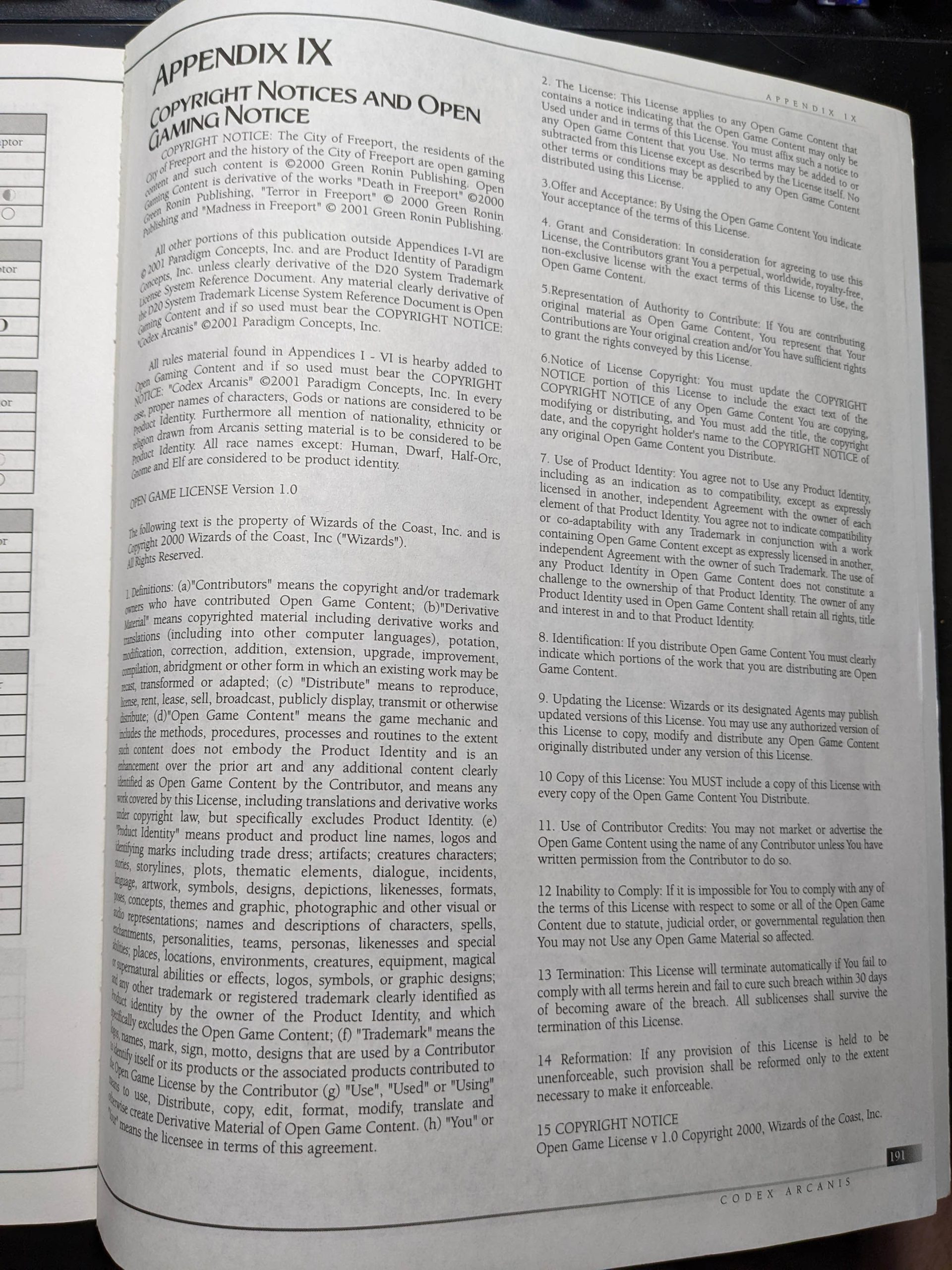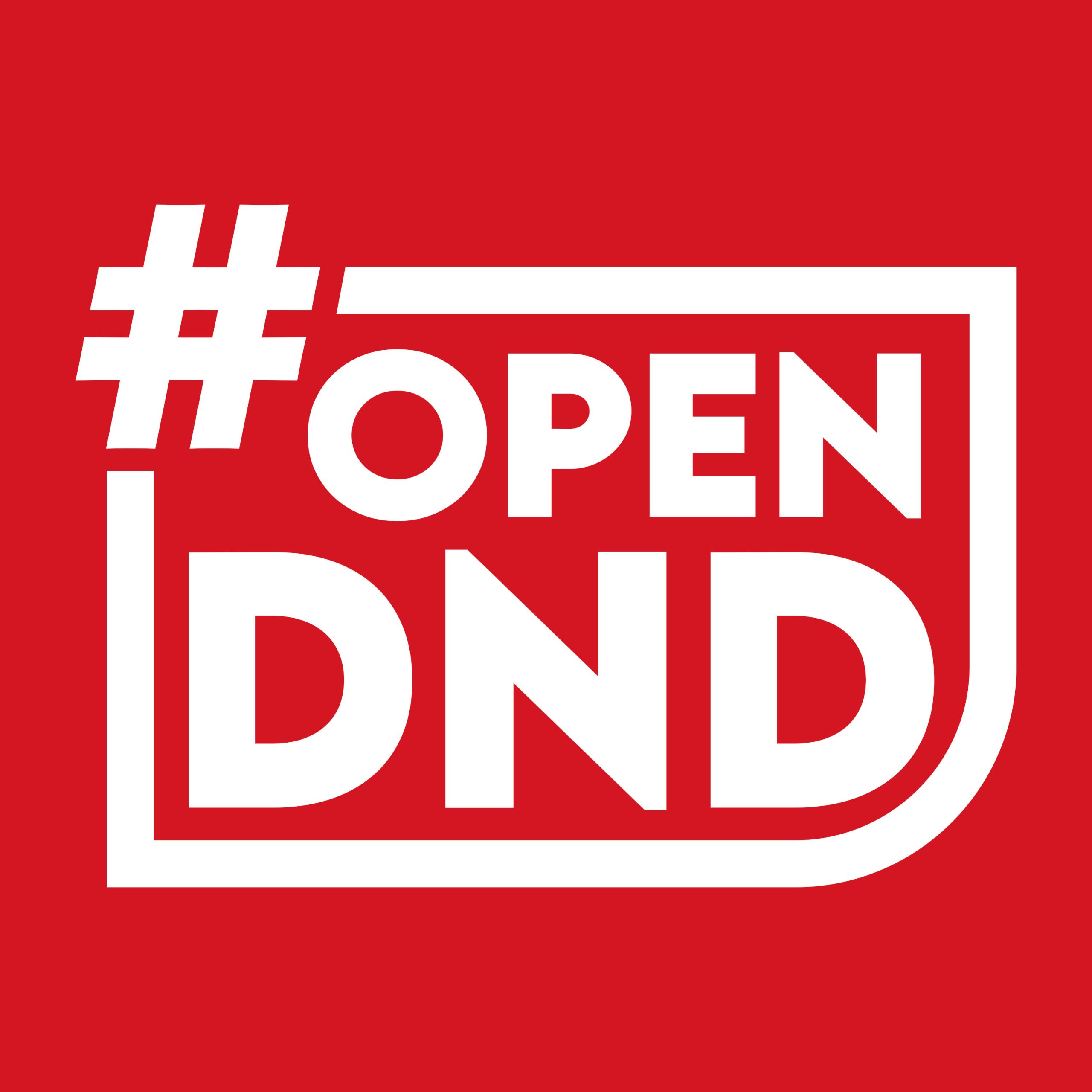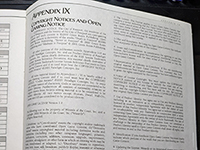The tabletop gaming community is up in arms about the future of independent creators who monetize D&D using the “OGL” or Open Gaming License for Dungeons and Dragons content. Aggro correspondent Raymond Bruels breaks down what’s going on.
News is flaring around the internet regarding leaks of a new Open Game License (OGL) from Wizards of the Coast (WoTC). Speculation regarding the future of the OGL 1.1 has many independent and third-party game creators concerned as to the future of their products, the continued access and use of the rules for D&D, and ultimately how this will affect the future of independent products going forward. For background, the original Open Game License, published in 2000 by Wizards of the Coast allowed for the use of the basic rules for the third edition of Dungeons & Dragons through the System Reference Document (SRD). The 900-word OGL outlined simply how independent creators could build D&D derivatives and compatible materials to support and promote the D20 system. Opening any third-party materials, you will usually find a copy of the agreement posted in the back of the book,  as required by the license. Wizards later updated the OGL 1.0 when they released the fifth edition of the D&D rules in 2014, with a modified OGL 1.0a. With the OGL 1.0a it gave creators additional license when publishing their works through the Dungeon Master’s Guild giving access to using WoTC properties such as the Forgotten Realms setting.
as required by the license. Wizards later updated the OGL 1.0 when they released the fifth edition of the D&D rules in 2014, with a modified OGL 1.0a. With the OGL 1.0a it gave creators additional license when publishing their works through the Dungeon Master’s Guild giving access to using WoTC properties such as the Forgotten Realms setting.
(Note: not going to dive into the Game System License (GSL) that Wizards released with the fourth edition.)
Rumors have been swirling regarding what a new OGL would look like for years. Wizards confirmed those rumors in 2022 with a post indicating they would be releasing a new OGL in 2023. Two weeks after that post io9, reported on a copy of the leaked OGL 1.1. The 9000-word OGL 1.1 contained several stifling changes indicating Wizard’s is tightening their fist on the use of their content.
Under the OGL 1.1, the previous OGL 1.0a would become void, creating the need to conform to the new license and a rush for independent creators to modify their existing catalogs of work to fall in line with the new guidance. It also establishes a requirement for creators to report content created, and revenue generated directly to WoTC. These revenue reports from creators will establish tiers of use, with the highest tier – those companies and creators making a gross income of $750,000 a year to pay royalties of 25%. This is huge as it would directly impact fan favorites Kobold Press, Paizo’s Pathfinder lines, Pelgrane Press’ 13th Age, and many other companies (yes, even Critical Roll which I’ll touch on later) who have relied on the OGL 1.0a and the SRD for their products.
The changes don’t stop there though.
Creators who use crowdfunding sites for their products will be encouraged by the license to use Kickstarter, as the royalty fee on qualifying revenue will only be 20% as opposed to the 25% on other platforms (like IndieGoGo). This limits creators’ options. Further and perhaps more concerning is the clause of the OGL 1.1 that grants Wizards a “nonexclusive, perpetual, irrevocable, worldwide, sub-licensable, royalty-free license to use that content for any purpose.” Meaning content creators large or small could find their innovations and intellectual property taken and printed into Wizards’ works without consent or compensation.
The OGL 1.1 would also impact online gaming platforms, such as Foundry, Alchemy, Astral, TaleSpire, and others, that do not specifically have an existing relationship or greater licensing access with WoTC. The OGL 1.1 “only allows for the creation of roleplaying games and supplements in printed media and static electronic file formats. It does not allow for anything else, including but not limited to things like videos, virtual tabletops or VTT campaigns, computer games, novels, apps, graphics novels, music, songs, dances, and pantomimes. You may engage in these activities only to the extent allowed under the Wizards of the Coast Fan Content Policy or separately agreed between You and Us.” This would take aim at the competition to the One D&D virtual tabletop that is in production.
 Heard of Critical Role? Matthew Mercer and his “nerdy ass voice actors” drew a great deal of interest and attention to D&D fifth edition, but also skillfully leveraged the popularity and loving community into a powerhouse of digital content, comic books, printed game media, merch and a fantastic Amazon series, The Legend of Vox Machina. Mercer is a master storyteller and world builder, with his Tal’Dorei setting quickly being a D&D fan favorite. Under the new OGL 1.1, that setting could easily find its way into reprints directly from Wizards of the Coast. Given the last print run of the campaign setting, Tal’Dorei Reborn came out of Darrington Press, the tabletop publishing arm of Critical Role, WoTC would certainly be looking for royalties from future publications. Critical Role will surely manage to work out a separate licensing deal with Wizards, but it still looks like trouble for other less well-known creators.
Heard of Critical Role? Matthew Mercer and his “nerdy ass voice actors” drew a great deal of interest and attention to D&D fifth edition, but also skillfully leveraged the popularity and loving community into a powerhouse of digital content, comic books, printed game media, merch and a fantastic Amazon series, The Legend of Vox Machina. Mercer is a master storyteller and world builder, with his Tal’Dorei setting quickly being a D&D fan favorite. Under the new OGL 1.1, that setting could easily find its way into reprints directly from Wizards of the Coast. Given the last print run of the campaign setting, Tal’Dorei Reborn came out of Darrington Press, the tabletop publishing arm of Critical Role, WoTC would certainly be looking for royalties from future publications. Critical Role will surely manage to work out a separate licensing deal with Wizards, but it still looks like trouble for other less well-known creators.
 Is there hope on the horizon for Wizards of the Coast and D&D? The short answer is maybe. Given the enormous backlash from the gaming community and creators, Wizards has yet to release the official OGL 1.1 document. The leak came out in January of 2023 and WoTC seemed poised for criticism. It is a dangerous game to test the waters of their customers with this new license, as it is now unifying and creating an uprise in a fandom known for rules lawyers (and actual lawyers). There is a growing movement among fans with an open letter to Wizards of the Coast called #OpenDND. Notable members of the community have signed the petition such as Michael Shea of Sly Flourish, Michael Holik of Mage Hand Press, Owen K.C. Stephens of Rogue Genius Games, and many more. At the time of writing, it had gained over twenty-six thousand signatures and growing as awareness builds.
Is there hope on the horizon for Wizards of the Coast and D&D? The short answer is maybe. Given the enormous backlash from the gaming community and creators, Wizards has yet to release the official OGL 1.1 document. The leak came out in January of 2023 and WoTC seemed poised for criticism. It is a dangerous game to test the waters of their customers with this new license, as it is now unifying and creating an uprise in a fandom known for rules lawyers (and actual lawyers). There is a growing movement among fans with an open letter to Wizards of the Coast called #OpenDND. Notable members of the community have signed the petition such as Michael Shea of Sly Flourish, Michael Holik of Mage Hand Press, Owen K.C. Stephens of Rogue Genius Games, and many more. At the time of writing, it had gained over twenty-six thousand signatures and growing as awareness builds.
The biggest risk Wizards may find with this present debacle is losing supporters to more independent games. With the width and diversity of the Roleplaying Game Industry, there are so many games available that many may just walk away. Worse yet, as folks turn their eyes toward Wizards of the Coast, and their parent company Hasbro, they may be turned off to all their product lines and IPs. With the Dungeons and Dragons movie being released at the end of March 2023, having this kind of negative publicity may hinder its success at the box office.
 Ultimately, this kind of movement out of Wizards isn’t surprising. During a web seminar, Cynthia Williams the CEO of Wizards of the Coast was quoted as saying, “D&D has never been more popular, and we have really great fans and engagement, but the brand is really under-monetized.”
Ultimately, this kind of movement out of Wizards isn’t surprising. During a web seminar, Cynthia Williams the CEO of Wizards of the Coast was quoted as saying, “D&D has never been more popular, and we have really great fans and engagement, but the brand is really under-monetized.”
Looks like Hasbro has decided to capitalize on that intention, but the fans have clearly rolled for initiative.


0 Comments Go ahead and login or register